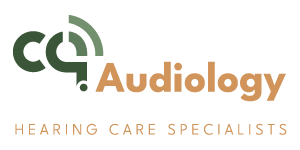Contact Us
We would love to speak with you.
Feel free to reach out using the below details.
Visit our main clinic
- T33 & 34A, City Centre Plaza, 24 Fitzroy Street, Rockhampton, QLD 4700
Get In Touch
- Phone: (07) 4848 6528
- Email: reception@cqaudiology.com.au
Trading Hours
- Mon-Fri 9:00AM - 5:00PM
- Sat 9:00AM - 12:00PM
Get a callback
Fill out the form below and we will contact you as soon as possible!
CQ Audiology Visiting Sites
BARCALDINE
Barcaldine 60 & Better Program
13 Willow Street
QLD 4725
BILOELA
Ace Medical Centre
48 Grevillea Street
QLD 4715
BLACKALL
Blackall Hospital
189 Landsborough Highway
QLD 4472
BLACKWATER
North Blackwater General Practice
14 Blain Street
QLD 4717
EMERALD
Lot 1 Pilot Farm Road
QLD 4720
MOUNT MORGAN
41 Morgan Strreet
QLD 4714
ROCKHAMPON CITY
T 33 & 34A City Centre Plaza
24 Fitzroy Street
QLD 4700
TAMBO
Tambo Multi Purpose Centre
26 Arthur Street, Tambo Queensland 4478
LONGREACH
North & West Queensland Primary Health Sercvies
19 Duck Street, Longreach Queensland 4730
YEPPOON
Keppel Bay Medical Centre
Shopt 26, Keppel Bay Plaza
64-67 James Street
QLD 4703

Experience Unmatched Clarity with Hearing Test Struck Oil - Rockhampton
Why Do I Need a Hearing Test?
Are you looking for hearing test Struck Oil – Rockhampton QLD? Have you ever considered the impact that even slight hearing loss might have on your daily interactions and overall quality of life? A hearing test isn’t just for those who find themselves frequently asking others to repeat themselves; it’s a crucial health check that ensures you’re not missing out on more than just bits of conversation. By identifying any changes early, including issues that may cause your hearing to muffle, you’re more likely to preserve your hearing and continue enjoying all the sounds around you. If you’re curious about how your hearing stacks up, there’s more to explore about the benefits and procedures of hearing assessments.
Understanding Hearing Tests
Hearing tests, conducted by audiologists, precisely assess your ability to hear different sounds and pinpoint the type and severity of any hearing loss. These tests are crucial for understanding your overall hearing health, the condition of your ear canal, and guiding potential treatment options. You’ll find that different tests are available depending on age and specific needs. For adults and older children, tests typically involve wearing headphones and indicating whether you can hear various tones. For babies and young children, audiologists might use specialized methods to measure how the inner ear and brain respond to sounds.
Moreover, these assessments aren’t just about finding out if you have hearing loss. They also determine the nature of the loss—whether it’s conductive (related to the outer or middle ear), sensorineural (related to the inner ear), or a mix of both, involving issues such as the ear canal or otitis. This information is essential for crafting a treatment plan that’s tailored to your needs. If you’re experiencing issues like difficulty hearing conversations, constant ringing in your ears, or symptoms like vertigo, these could be signs pointing toward the need for a hearing test. However, it’s always best to consult with a professional who can provide a thorough evaluation and confirm any findings.
Signs You Need a Hearing Test
If you’re struggling to follow conversations, especially in noisy settings, it might be time to consider a hearing test to evaluate if hearing aids could enhance your auditory experience. This difficulty often signals that your hearing isn’t as sharp as it used to be. Moreover, if you’re frequently asking people to repeat themselves or feel like everyone mumbles, these are classic signs that you shouldn’t ignore.
Do you ever hear ringing or buzzing in your ears? These sounds, often described as tinnitus, can be more than just annoying—they might indicate underlying hearing issues. It’s a common misconception that such sounds are normal, but they can actually be a red flag for the need to check your hearing health.
Concerns about a child’s hearing development should also prompt a hearing evaluation. If a child shows delayed speech or language skills, it’s crucial to investigate whether hearing loss might be a contributing factor.
Lastly, any sudden change in your ability to hear, such as a noticeable drop in hearing acuity, should be taken seriously. Immediate testing can help identify the cause and decide the next steps for potentially crucial interventions. Don’t wait for your hearing to worsen; getting tested is a proactive step towards maintaining your auditory health, potentially with the use of hearing aids if deemed necessary.
Types of Hearing Tests
To accurately assess your hearing health, various types of hearing tests are employed based on age and specific auditory concerns. As an adult, you’re likely to encounter pure tone audiometry, which is a fundamental method used to measure your hearing levels. During this test, you’ll wear headphones and listen to tones at different pitches and volumes. Each tone is played in one ear at a time, and you’ll indicate when you can hear each sound. The results help pinpoint the quietest sounds you can hear at various frequencies, effectively mapping out any hearing loss.
Another common test is tympanometry, which evaluates the condition of your middle ear and mobility of your eardrum. This involves placing a probe in your ear to change the air pressure, measuring how your eardrum reacts. It’s crucial for detecting issues like fluid in the ear, eardrum perforations, or eustachian tube dysfunction.
These tests are vital in determining not just the presence of hearing loss, but also its type and severity. Understanding these results can guide you and your healthcare provider in deciding the best treatment plan to maintain or improve your hearing health.
Hearing Tests for Children
Assessing a child’s hearing early is essential for detecting issues that could hinder their speech and language development. If you’ve noticed your child isn’t reacting to sounds or their speech isn’t developing as expected, it might be time to consider a hearing test. Children with undetected hearing loss may face challenges in school, struggling with language skills, which can affect their social interactions and academic performance.
Regular hearing tests are crucial, as they allow for early detection of hearing problems. When you catch these issues early, you’re paving the way for effective interventions that can dramatically improve your child’s life and future opportunities. Various specialized tests, including behavioral observation audiometry, are available for young children who can’t participate in traditional testing methods. These tests are designed to assess how well a child hears and responds to sounds in different environments, which can be crucial for children experiencing issues like muffled hearing due to otitis.
Don’t wait if you suspect your child has hearing issues. Early intervention can significantly enhance their educational and social prospects. Schedule a hearing test as soon as possible to ensure your child receives the support they need to thrive.
The Audiogram Explained
After scheduling your child’s hearing test, you’ll likely encounter an audiogram, a vital tool used to chart hearing thresholds across different frequencies. This visual representation helps audiologists determine how well your child hears various pitches and volumes, and can indicate if there’s a blockage in the ear canal affecting hearing. The audiogram plots the softest sounds your child can hear at different pitches, measured in decibels (dB), which can be vital for diagnosing issues related to the outer ear or canal.
Each point on the audiogram indicates a frequency or pitch, from low to high, and the corresponding minimum volume at which these sounds were detected. You’ll notice two types of lines representing air and bone conduction tests. These are crucial for identifying where the hearing issue lies—whether in the outer, middle, or inner ear.
Air conduction tests involve wearing headphones that play sounds directly into the ear. This method assesses the overall hearing ability. Bone conduction tests, on the other hand, use a device placed behind the ear to transmit sounds through vibrations. This bypasses the outer and middle ears, isolating the inner ear and auditory nerve’s response.
Understanding your child’s audiogram can clarify the nature of any hearing concerns, including outer ear issues, guiding further decisions about managing or treating potential hearing issues. This insight is foundational in tailoring the right support and interventions for your child’s hearing health.
Severity of Hearing Loss
Understanding the severity of your hearing loss is essential for choosing the right treatment, such as hearing aids, and improving your communication abilities. The range of hearing loss varies from mild to profound, which significantly affects your ability to hear different sounds. By pinpointing exactly how severe your hearing loss is, you can explore appropriate treatment options that best suit your needs.
Severe hearing loss can pose significant challenges in your everyday communication, impacting your overall quality of life. It’s not just about hearing less; it’s about potentially missing out on conversations, enjoying music, or hearing warning signals. This is why understanding the specific level of loss is crucial—it guides healthcare professionals to provide tailored interventions that can enhance your hearing experience.
Moreover, early detection plays a pivotal role. If you catch the severity of your hearing loss early, you’re more likely to manage it effectively and prevent further deterioration. Regular hearing tests are key in this regard, ensuring that any changes in your hearing health are addressed promptly. Don’t wait until you notice a substantial decline. Regular check-ups can make a world of difference in how you experience and interact with the world around you.
Why Choose CQ Audiology for hearing test?
When considering where to get your hearing tested, CQ Audiology is an excellent choice due to its state-of-the-art equipment and experienced audiologists. This facility ensures you’re receiving the most accurate hearing assessments possible. The team at CQ Audiology is well-versed in handling a wide range of hearing issues, offering thorough evaluations for all age groups. Whether you’re experiencing minor hearing difficulties or facing significant challenges, including issues like otitis, they’ve got the expertise to pinpoint your specific needs.
Moreover, the testing process at CQ Audiology doesn’t just stop at identifying the problem; it includes a comprehensive analysis of your hearing capabilities. This detailed approach helps in crafting personalized treatment options that are tailored specifically to your situation. You’ll appreciate how they prioritize not only the effectiveness but also the comfort of your experience. The goal is to make you feel at ease while ensuring that all your hearing concerns are meticulously addressed, including any discomfort in the ear canal or symptoms like vertigo.
Choosing CQ Audiology means opting for a service where your satisfaction and well-being are at the forefront. With their advanced technology and dedicated professionals, you’re set for a supportive journey towards better hearing.
Conclusion
You need a hearing test to stay on top of your auditory health. Whether you’ve noticed hearing changes or just want to be proactive, these tests can pinpoint issues early, allowing for effective treatment.
At CQ Audiology, personalized care and advanced testing options are tailored just for you. Don’t underestimate the importance of clear communication and quality of life.
Schedule your test today and ensure your ears are as healthy as the rest of you!
DISCLAIMER: The content on our site is intended for educational purposes only and should not be interpreted as an endorsement or recommendation of any treatments or products without a comprehensive hearing assessment. Users should seek professional advice and fully understand any potential side effects or risks before starting any treatment. Products mentioned on our site are not available for purchase by the public without prior consultation with a hearing health expert.
